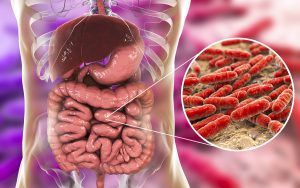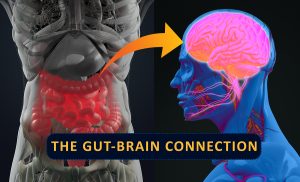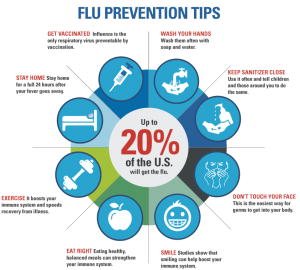New research presented at the London Microbiome Meeting asked the question “are gut bacteria crucial to healthy aging?” Marina Ezcurra, is a Ph.D. is a researcher working at the Queen Mary University of London in the United Kingdom. She uses a nematode (round worm) model to investigate various aspects of aging. Nematodes like C. elegans provide a useful model not only for genetic work, but also for the human gut flora as well. Moreover, it allows making observations about the connection between bacterial genes and aging. Coupled with the fact that the worm has such a short lifespan, the researchers can test bacterial genes, the aging of the worm and get meaningful results in short order.
It seems like one of the research objectives was changing the nematode’s gut flora and observing life expectancy and age-related diseases.
Pathological versus healthy gut bacteria composition
Dr. Ezcurra did a couple of experiments with the nematode C. elegans as a model. She could show that the worm’s gut bacteria composition mattered. First of all, if there was a pathological composition of the gut flora, the worm did not turn as old and there were various age-related diseases that developed. Secondly, they were very comparable to human age-related degenerative diseases like Alzheimer’s disease.
Another senior author researched how genes of gut bacteria influence life expectancy
Meet Dr. Meng Wang, associate professor of molecular and human genetics, Baylor College of Medicine in Houston, TX. He did extensive genetic research on C. elegans. He used this model, because C. elegance lives only 2 to 3 weeks. This animal model is easy to manipulate. For instance, he studied the gut bacteria composition. This link explains that he tested about 4000 E.coli bacteria with various gene defects. 29 E.coli strains when deleted, increased the worms’ lifespan.12 bacterial mutants among those prevented cancer and amyloid-beta, found in Alzheimer’s disease. Some mutant bacteria caused longevity by acting on processes linked to aging.
Colanic acid is an important anti-aging factor in C.elegans
Dr. Wang joined Dr. Christophe Herman, associate professor of molecular and human genetics at Baylor, for further research. It turned out that one of the keys to longevity of the nematodes were the mutant bacteria in the gut over-producing the polysaccharide colanic acid. This allowed the nematodes to live much longer. The researchers could show further that fission and fusion processes with regard to mitochondria are important. Mitochondria are the energy packages in cells and these processes are regulated by the presence of colanic acid. As a result, if your gut has good bacteria you can grow old and escape Alzheimer’s disease and cancer.
Dr. Meng Wang said: “Of the nearly 4,000 bacterial genes we tested, 29, when deleted, increased the worms’ lifespan. Twelve of these bacterial mutants also protected the worms from tumor growth and accumulation of amyloid-beta, a characteristic of Alzheimer’s disease in humans.”
Creating longevity with metformin, a diabetic drug
Physicians have known for some time that metformin stimulates longevity genes. This is the reason why diabetics on metformin live longer than diabetics on insulin. Dr. Ezcurra mentioned on 24 October, 2018 in her talk at the London microbiome Meeting that she had done experiments with C. elegans and metformin. Metformin reduces the risk of cancer and increases longevity in C. elegans as well as in mice (other experiments). Currently there is a clinical trial going on that investigates anti-aging under the influence of metformin in older people.
Effects of metformin on anti-aging
Metformin has the potential to target diabetes, cancer and Alzheimer’s pathologies all at once.
The anti-aging effect in humans with metformin involves the gut bacteria. Dr. Ezcurra says that this is the reason why diabetics on metformin live longer than diabetics on insulin. Metformin influences the folate bacterial metabolism of the gut flora. Other research has shown that the Akkermansia bacteria in the gut, which are good, desirable bacteria, will increase from 3-5% to 12.44% of the gut flora under the influence of metformin. Here is the discussion in detail in the following link.
Effect of gut bacteria on psychiatric diseases, obesity and diabetes
Dr. Ezcurra said that there are many studies showing that dysbiosis of the gut can lead to psychiatric diseases, Parkinson’s disease, obesity and diabetes etc.
We need to know more about whether a healthy gut flora will let us age without causing age-related diseases. Dr. Ezcurra stated: “By better understanding the links between nutrition, microbiome, and health, we can understand how the elderly can maintain their microbiome, and also help them directly by using pre- and probiotic strategies. This would help us age in a better way, maintaining health and quality of life in old age without drugs or surgery.”
Conclusion
The composition of the gut microbiome appears to determine whether we age gracefully or not and whether we get sick as we age or not. Everything depends on the diversity of the gut flora. There are bacteria in the gut that are good for us and also bacteria that are bad for us. Metformin has been shown to stimulate the good gut bacteria to multiply. Dr. Ezcurra is continuing her research into this. She clearly stated that it should be possible for us to age in a better way and maintain health and quality of life in old age without drugs or surgery.









